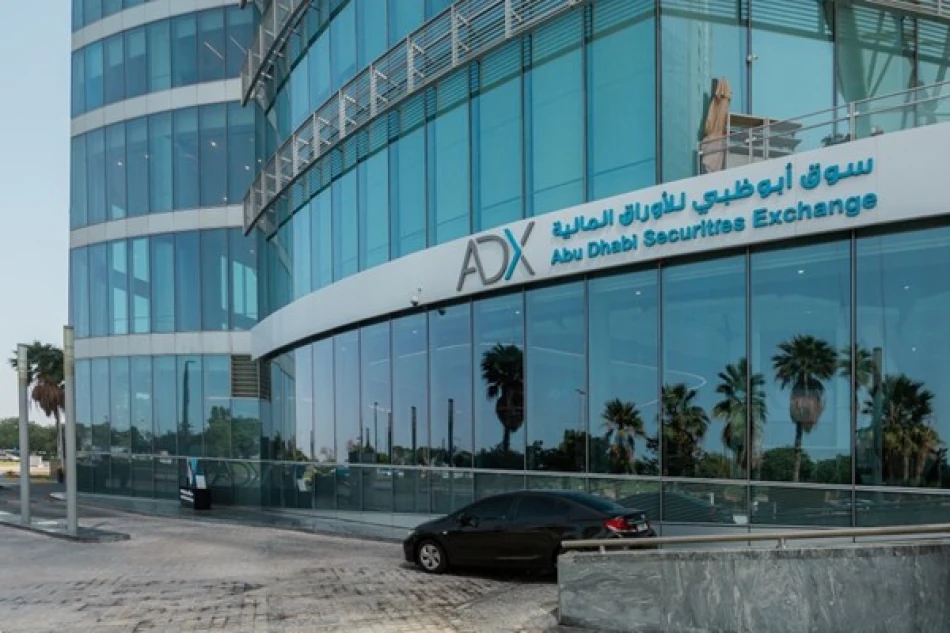
UAE Stocks Soar to Remarkable Gains of AED 134.5 Billion in July
UAE Stock Markets Surge on Foreign Investment Wave, Adding $36.6 Billion in July
The UAE's stock markets delivered their strongest performance in months during July 2025, with combined gains of 134.51 billion dirhams ($36.6 billion) driven by a surge in foreign investment confidence. Abu Dhabi's market climbed 4.1% while Dubai soared 7.95%, signaling renewed appetite for Middle Eastern equities amid growing optimism about corporate earnings and economic resilience.
Foreign Capital Floods UAE Markets
International investors emerged as the dominant force behind July's rally, injecting a net 2.12 billion dirhams into UAE stocks. This represents a significant shift in sentiment, with non-Arab foreign investors alone contributing 848.73 million dirhams in net purchases on the Abu Dhabi Securities Exchange.
The foreign buying spree reflects broader trends seen across Gulf markets, where international funds are rotating into regional equities as global investors seek higher yields and diversification away from volatile Western markets. This mirrors similar patterns observed in Saudi Arabia's Tadawul, which has attracted record foreign investment over the past year.
Abu Dhabi Leads the Charge
Abu Dhabi's market capitalization swelled to 3.163 trillion dirhams, adding 69.82 billion dirhams in July alone. Foreign investors purchased 8.927 billion dirhams worth of shares while selling only 8.078 billion dirhams, demonstrating strong conviction in the emirate's blue-chip companies.
Institutional money also poured in, with investment firms and funds buying 19.038 billion dirhams worth of stocks. This institutional backing provides a solid foundation for sustained market growth, as these investors typically take longer-term positions based on fundamental analysis rather than short-term speculation.
Dubai's Spectacular Rally
Dubai Financial Market's 7.95% surge outpaced Abu Dhabi, driven by intense foreign interest that resulted in net purchases of 1.273 billion dirhams. The market's capitalization jumped to 1.060 trillion dirhams, adding 64.68 billion dirhams in value.
Dubai's outperformance likely reflects its position as a regional hub for fintech, real estate, and tourism – sectors that benefit from economic reopening and increased regional connectivity. The emirate's aggressive push into digital assets and blockchain technology may also be attracting growth-oriented international investors.
What This Means for Investors
The July rally positions UAE markets among the region's top performers, potentially attracting additional index inclusion and passive fund flows. For active traders, the sustained foreign interest suggests momentum could continue into the third quarter, particularly if corporate earnings meet elevated expectations.
However, the heavy reliance on foreign inflows creates vulnerability to global risk sentiment shifts. Any escalation in geopolitical tensions or changes in US monetary policy could quickly reverse these gains, as international investors tend to exit emerging markets first during periods of uncertainty.
Regional Context and Outlook
The UAE's market surge aligns with broader Gulf Cooperation Council equity strength, as regional economies benefit from sustained oil revenues and economic diversification efforts. Unlike previous commodity-driven rallies, this cycle appears supported by genuine economic transformation and improved corporate governance standards.
The key test ahead will be whether domestic institutional investors and high-net-worth individuals follow foreign lead. Local buying would provide more sustainable support for current valuations, while continued reliance on international flows leaves markets exposed to external shocks.
With trading volumes exceeding 50 billion dirhams across both exchanges, liquidity conditions remain robust – a crucial factor for maintaining foreign investor interest in the months ahead.
Most Viewed News

 Layla Al Mansoori
Layla Al Mansoori






